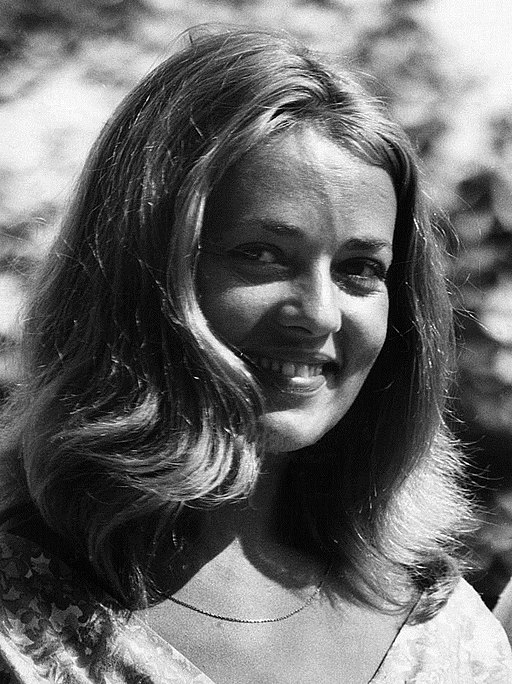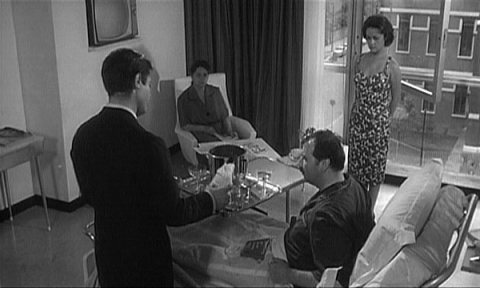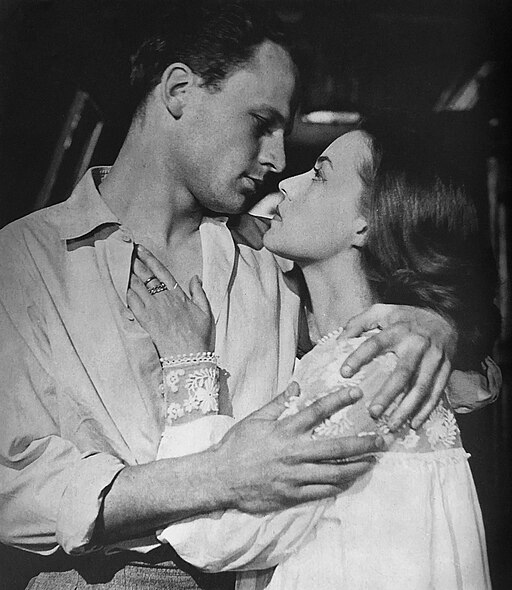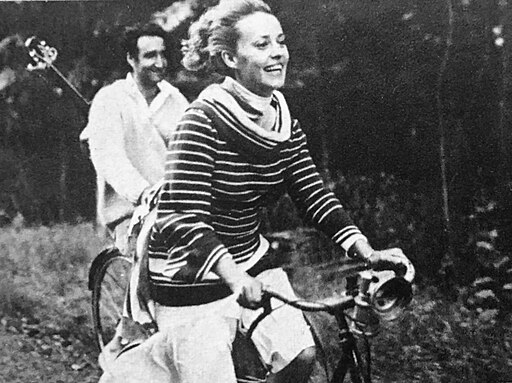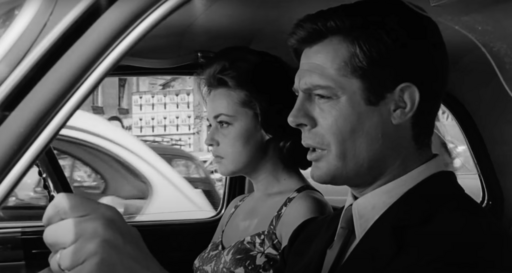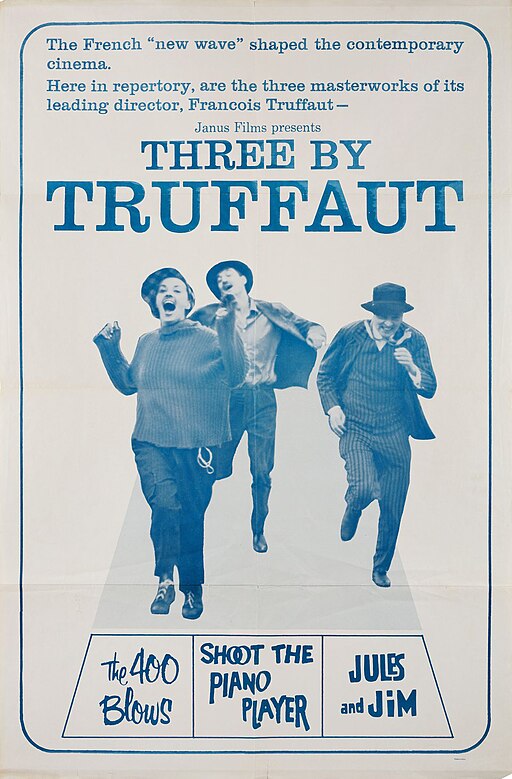Jeanne Moreau
back| Full Name | Jeanne Moreau |
| Stage Name | Jeanne Moreau |
| Born | January 23, 1928 |
| Birthplace | Paris, France |
| Died | July 31, 2017 |
| Buried | Montmartre Cemetery, Paris, France |
| Married to | Jean-Louis Richard (1949–1964) - William Friedkin (1977–1979) |
| Children | Jérôme Richard |
| Notable films | Elevator to the Gallows (1958) - The Lovers (1958) - Jules and Jim (1962) - The Bride Wore Black (1968) - Diary of a Chambermaid (1964) - The Trial (1962) - La Notte (1961) |
Jeanne Moreau
“La Grande Dame" of French Cinema
Jeanne Moreau (1928-2017) was an iconic French actress known for her profound impact on cinema.
Her role in François Truffaut's "Jules and Jim" (1962) cemented her status as a French New Wave star. Moreau's versatility shone in collaborations with directors like Louis Malle, Michelangelo Antonioni, and Orson Welles. She won numerous awards, including a BAFTA Fellowship and an honorary Palme d'Or at Cannes.
Related
Jeanne Moreau (1928 – 2017)
Biography and Career Overview
Jeanne Moreau was an iconic French actress, singer, and director whose career spanned over seven decades. Known for her intense performances and captivating presence, Moreau became a symbol of French cinema and left an indelible mark on the industry.
Early Years and Background
Jeanne Moreau was born on January 23, 1928, in Paris, France. Her father, Anatole-Désiré Moreau, was a restaurateur, and her mother, Kathleen Buckley, was a dancer from Lancashire, England. Raised in a bilingual household, Moreau's early exposure to diverse cultures undoubtedly influenced her eclectic career. Her family moved to Vichy during her childhood, where she spent her formative years before returning to Paris.
As a child, Moreau was drawn to the arts, and she decided to pursue acting after attending a performance of Jean Anouilh's play "Antigone." This experience had a profound impact on her, and she enrolled at the Conservatoire de Paris to study acting. Her talent was evident, and she quickly made a name for herself in the theatrical world.
Path Toward Success
Moreau joined the prestigious Comédie-Française in 1947, becoming one of the youngest members in its history. Her early stage work included roles in classical plays by Molière and Racine, which helped her develop a strong foundation in dramatic arts. However, she soon felt confined by the traditional roles and yearned for more contemporary and challenging parts.
Her transition to film began with minor roles in the early 1950s. Her first significant film appearance was in "Dernier Amour" (1949). It wasn't until her collaboration with director Louis Malle in "Elevator to the Gallows" (1958) that she gained widespread recognition. The film, accompanied by a haunting score from Miles Davis, showcased Moreau's ability to convey deep emotion and complexity, establishing her as a formidable talent.
Breakthrough and Iconic Roles
The late 1950s and 1960s were transformative years for Moreau. Her role in "The Lovers" (1958), also directed by Louis Malle, was both controversial and acclaimed, further cementing her status as a leading actress. Moreau's portrayal of independent and often unconventional women resonated with audiences and critics alike.
Her most iconic role came in François Truffaut's "Jules and Jim" (1962). The film, a poignant exploration of a love triangle set against the backdrop of World War I, featured Moreau as Catherine, a free-spirited woman who defies societal norms. Her performance was celebrated for its depth and nuance, and the film remains a cornerstone of French New Wave cinema.
Moreau continued to work with prominent directors, including Michelangelo Antonioni in "La Notte" (1961), Orson Welles in "The Trial" (1962), and Luis Buñuel in "Diary of a Chambermaid" (1964). Her collaboration with Truffaut continued with "The Bride Wore Black" (1968), a Hitchcockian thriller that showcased her versatility.
Personal Life and Marriages
Jeanne Moreau's personal life was as dynamic as her career. She married actor and director Jean-Louis Richard in 1949. The couple had one son, Jérôme Richard, born in 1949. Their marriage ended in divorce in 1964, but they remained on good terms.
In 1977, Moreau married American director William Friedkin, known for his work on "The Exorcist" and "The French Connection." However, their marriage was short-lived, ending in divorce in 1979. Despite these brief unions, Moreau was known for her independent spirit and often spoke about the importance of personal freedom and autonomy in her life and career.
Passions and Later Career
Beyond acting, Jeanne Moreau had a passion for singing and directing. She released several albums and performed in concerts, showcasing her distinctive voice. Her directorial debut came with "Lumière" (1976), followed by "The Adolescent" (1979). These films, although not commercially successful, were praised for their introspective and personal storytelling.
Moreau's later career was marked by continued work in both film and theater. She remained a prominent figure in European cinema, appearing in films like Wim Wenders' "Until the End of the World" (1991) and "The Old Lady Who Walked in the Sea" (1991), for which she won a César Award for Best Actress.
Death and Legacy
Jeanne Moreau passed away on July 31, 2017, at the age of 89. She died in her home in Paris. The cause of her death was not officially disclosed, but it was understood to be of natural causes, reflecting her advanced age. Moreau was laid to rest in the Montmartre Cemetery in Paris, a city that had been central to her life and career.
Jeanne Moreau's legacy is profound and far-reaching. She was not only a trailblazer for women in cinema but also a symbol of artistic integrity and independence. Her performances continue to inspire actors and filmmakers around the world. Moreau's contribution to the arts was recognized with numerous accolades, including a BAFTA Fellowship, an honorary Palme d'Or at the Cannes Film Festival, and countless other honors.
Her enduring impact on cinema and her embodiment of the liberated, modern woman ensure that Jeanne Moreau will be remembered as one of the greatest actresses of the 20th century.
1956 Interview with Jeanne Moreau:
Analysis of Jeanne Moreau’s Acting Style:
Jeanne Moreau's acting style is celebrated for its depth, intensity, and complexity. Her performances were characterized by a profound emotional resonance and an ability to convey the inner lives of her characters with subtlety and nuance.
Emotional Intensity and Subtlety
Moreau was known for her ability to express a wide range of emotions with remarkable subtlety. She could convey profound sadness, passion, or inner turmoil with just a glance or a slight change in expression. This emotional intensity was not overt but rather simmered beneath the surface, making her performances deeply compelling and realistic. Her eyes, in particular, were a powerful tool, often communicating what words could not.
Complexity and Ambiguity
Her characters often embodied complexity and ambiguity, reflecting the multifaceted nature of human experience. Moreau excelled in roles that required a balance of strength and vulnerability, moral ambiguity, and emotional depth. She brought a rich, layered quality to her characters, making them feel real and relatable. This complexity allowed her to explore the intricacies of human relationships, desires, and motivations.
Naturalism and Authenticity
Moreau's acting was rooted in naturalism, and she brought an authenticity to her roles that resonated with audiences. She avoided theatricality and embraced a more understated, realistic approach. Her performances felt genuine and unforced, allowing viewers to connect with her characters on a personal level. This naturalism was a key element in her success and contributed to the enduring appeal of her films.
Versatility and Range
Throughout her career, Moreau demonstrated incredible versatility, taking on a wide variety of roles across different genres. She seamlessly transitioned from drama to comedy, from historical epics to contemporary stories, and from mainstream cinema to avant-garde projects. Her ability to adapt to different styles and directors showcased her range and made her a sought-after actress in both French and international cinema.
Collaboration with Directors
Moreau had a unique ability to collaborate effectively with directors, bringing their visions to life while infusing her own interpretive depth into her roles. Her collaborations with directors like Louis Malle, François Truffaut, Michelangelo Antonioni, and Orson Welles were particularly fruitful, resulting in some of her most iconic performances. She had a keen understanding of cinematic language and was able to translate complex directorial ideas into nuanced performances.
Embodiment of Independent and Unconventional Women
A recurring theme in Moreau's filmography is her portrayal of independent, strong-willed, and often unconventional women. She was drawn to characters who defied societal norms and expectations, reflecting her own views on personal freedom and autonomy. This aspect of her acting resonated with the evolving roles of women in society, particularly during the 1960s and 1970s, and made her a feminist icon.
Voice and Presence
Moreau's distinctive voice and commanding screen presence were also crucial elements of her acting style. Her voice, with its rich, husky timbre, added an extra layer of depth to her performances. Whether delivering dialogue or singing, her voice conveyed a range of emotions and added to the authenticity of her characters. Her presence on screen was magnetic, drawing audiences into the world of her films.
Mastery of Silence and Stillness
Moreau had a remarkable ability to use silence and stillness to great effect. She understood the power of what is left unsaid and could convey a wealth of meaning through silence. Her use of stillness, often contrasted with moments of intense emotion, created a dynamic tension in her performances that captivated audiences.
Influence and Legacy
Jeanne Moreau's acting style has had a lasting influence on generations of actors. Her commitment to authenticity, emotional depth, and complexity set a standard for screen acting. Her legacy is evident in the work of many contemporary actors who cite her as an inspiration.
Personal Quotes from Jeanne Moreau:
On acting and emotions:
"Acting deals with very delicate emotions. It is not putting up a mask. Each time an actor acts he does not hide; he exposes himself."
On independence and self-reliance:
"Age does not protect you from love. But love, to some extent, protects you from age."
On the essence of cinema:
"I think more and more that the most beautiful thing is cinema. And there’s music, and then there’s painting. All these things can be beautiful, but cinema is the most beautiful."
On her career:
"I’ve never worried about age. Age is just a number. It’s totally irrelevant unless, of course, you happen to be a bottle of wine."
On personal freedom:
"What is amazing for a woman of my age is that I’m still wanted. I’m recognized. I’m loved. I’m needed. That’s wonderful."
On living a full life:
"If you want to live your life through to the end, you have to be ready to risk death. You have to be able to look death in the face and accept it."
On passion for acting:
"I’ve never learned anything except through play, through doing what I wanted to do, whether it’s acting, loving, or being with friends."
On the power of silence in performance:
"Silence may be golden, but can you think of a better way to entertain someone than to listen to him?"
On love and relationships:
"Love life seems to be that of a springtime. I’d like to live all of it."
On the nature of fame:
"Fame is wonderful, but it lasts only as long as you do."
What Others Said about Jeanne Moreau:
Directors and Collaborators
François Truffaut (Director of "Jules and Jim"):
- "There is Moreau the star and Moreau the great actress. They are the same person."
Orson Welles (Director of "The Trial" and "The Immortal Story"):
- "She has all the qualities an actress could wish for: the looks, the intelligence, and, above all, the talent. Jeanne Moreau is quite simply one of the greatest actresses of our time."
Louis Malle (Director of "Elevator to the Gallows" and "The Lovers"):
- "Jeanne Moreau has an incredible presence. When she is on screen, you can't look at anything else."
Michelangelo Antonioni (Director of "La Notte"):
- "She has a unique ability to convey profound emotion with the smallest of gestures. Jeanne Moreau is a true artist."
Actors and Colleagues
Brigitte Bardot (French Actress):
- "Jeanne is a force of nature. She has an aura that few can match."
Jean-Paul Belmondo (French Actor):
- "Working with Jeanne Moreau is like being in the presence of a master. She brings out the best in everyone around her."
Vanessa Redgrave (British Actress):
- "Jeanne Moreau is an inspiration. Her dedication to her craft and her ability to inhabit her characters is unparalleled."
Critics and Historians
Roger Ebert (Film Critic):
- "Jeanne Moreau brought a blend of intelligence, sensuality, and strength to her roles. She was one of the defining actresses of the French New Wave and beyond."
David Thomson (Film Historian):
- "Moreau had the ability to transform every film she was in. Her performances were always marked by a deep understanding of the human condition."
Pauline Kael (Film Critic):
- "Jeanne Moreau had a unique way of turning the ordinary into the extraordinary. Her presence on screen was magnetic."
General Reflections
French President Emmanuel Macron (On her passing):
- "With Jeanne Moreau, French cinema loses one of its legends. The actress who embodied the New Wave, who conquered so many hearts with her voice and her talent, leaves behind an immense void."
Agnès Varda (French Filmmaker):
- "Jeanne Moreau was a symbol of freedom. She chose her roles with care, and she lived her life with a spirit of independence that was truly inspiring."
Awards and Recognition:
Jeanne Moreau's illustrious career garnered numerous awards and nominations, reflecting her significant impact on cinema. Here is a comprehensive overview of the awards and honors she received:
Major Awards and Honors
César Awards (France)
- Best Actress:
- 1988: "The Old Lady Who Walked in the Sea" (La vieille qui marchait dans la mer) - Winner
Cannes Film Festival (France)
- Honorary Palme d'Or:
- 2003: Recognized for her exceptional contribution to cinema
- Best Actress:
- 1960: "Seven Days... Seven Nights" (Moderato Cantabile) - Winner
Venice Film Festival (Italy)
- Volpi Cup for Best Actress:
- 1960: "Seven Days... Seven Nights" (Moderato Cantabile) - Winner
- Career Golden Lion:
- 1992: Honored for her contributions to the art of film
BAFTA Awards (United Kingdom)
- BAFTA Fellowship:
- 1996: Awarded for lifetime achievement in cinema
David di Donatello Awards (Italy)
- Best Foreign Actress:
- 1962: "La Notte" - Winner
- 1965: "The Train" - Winner
Other Awards and Honors
European Film Awards
- European Achievement in World Cinema Award:
- 1997: Recognized for her outstanding contribution to world cinema
Berlin International Film Festival (Germany)
- Silver Bear for Best Actress:
- 1958: "The Lovers" (Les Amants) - Winner
Montreal World Film Festival (Canada)
- Grand Prize of the Americas:
- 2000: Awarded for her lifetime achievements in cinema
National Board of Review (USA)
- Best Actress:
- 1962: "Eva" - Winner
Academy of Motion Picture Arts and Sciences (USA)
- Jean Hersholt Humanitarian Award:
- 1997: Recognized for her humanitarian efforts (Note: This information is a bit ambiguous as the official records do not list her as a recipient, but she was recognized in other capacities by the Academy)
Honorary Awards
Honorary Awards from Various Film Festivals
- San Sebastián International Film Festival:
- 1990: Lifetime Achievement Award
- Chicago International Film Festival:
- 1992: Career Achievement Award
- Locarno International Film Festival:
- 1996: Excellence Award
French National Honors
Légion d'Honneur (France)
- Officer: 1983
- Commander: 1995
- Grand Officer: 2008
Ordre des Arts et des Lettres (France)
- Commander: 1994
Complete List of Movies Starring Jeanne Moreau:
1940s
1949
- Dernier Amour: Jeanne Moreau's film debut, a drama about love and relationships.
1950s
1951
- Pigalle-Saint-Germain-des-Prés: A drama set in the lively neighborhoods of Paris.
- Meurtres: A crime thriller about a murder investigation.
1952
- La Reine Margot: A historical drama about the life of Queen Margot of France.
1953
- Julietta: A romantic comedy about a young woman who disrupts her fiancé's plans.
- The Strange Madame X: A melodrama about a woman's struggle with her identity and love.
- Three Sinners: A drama involving complex romantic relationships.
1954
- Before the Deluge: A film about a group of young friends facing the consequences of their actions.
- The Lovers of Marianne: A romantic drama about the turbulent relationship between two lovers.
- Queen Margot: A historical drama centered on the life of Queen Margot.
1955
- Gas-Oil: A crime drama involving a truck driver caught up in a murder mystery.
1956
- Until the Last One: A drama about a man seeking vengeance for his brother's death.
- The Wages of Sin: A drama about the moral and social consequences of a woman's actions.
1957
- The Restless Heart: A romantic drama about a man torn between two women.
- The Sheep Has Five Legs: A comedy about a man who discovers he has five identical brothers.
1958
- Elevator to the Gallows: A crime thriller about a woman and her lover's perfect murder plan gone wrong.
- The Lovers: A drama about a woman's romantic entanglements and her search for happiness.
1959
- Seven Days... Seven Nights: A romantic drama about a woman's tumultuous relationships.
- Back to the Wall: A crime drama about a man seeking revenge against his wife's lover.
- The 400 Blows: A cameo appearance in François Truffaut's classic about a young boy's troubled life.
1960s
1960
- Moderato Cantabile: A drama about a woman's obsession with a murder she witnesses.
1961
- La Notte: A drama about a married couple's disintegrating relationship, set against the backdrop of Milan.
- The Seven Deadly Sins: An anthology film, with Moreau appearing in one segment about vanity.
1962
- Jules and Jim: A classic French New Wave film about a love triangle between two friends and a free-spirited woman.
- The Trial: An adaptation of Kafka's novel, with Moreau playing a pivotal role in the surreal legal drama.
- Eva: A drama about a writer's obsession with a mysterious woman.
1963
- The Fire Within: A drama about a man's existential crisis and his struggle with depression.
1964
- Diary of a Chambermaid: A drama about a maid's experiences in a corrupt household.
- Mata Hari, Agent H21: A spy drama about the infamous dancer and spy Mata Hari.
1965
- Viva Maria!: A comedy-adventure about two women who become revolutionary leaders.
- The Oldest Profession: An anthology film about the history of prostitution, with Moreau in one segment.
1966
- Mademoiselle: A drama about a schoolteacher's dark obsession with a local woodcutter.
1968
- The Bride Wore Black: A thriller about a widow seeking revenge on the men responsible for her husband's death.
- The Immortal Story: A drama directed by Orson Welles, about a wealthy man's attempt to stage a real-life maritime legend.
1969
- Great Catherine: A historical comedy about the Russian empress Catherine the Great.
- Mayerling: A historical drama about the doomed romance between Crown Prince Rudolf of Austria and his lover, Mary Vetsera.
1970s
1971
- The Assassination of Trotsky: A historical drama about the assassination of the exiled Russian revolutionary.
1972
- Nathalie Granger: A drama about two women dealing with domestic issues and a mysterious child.
1973
- The Train: A drama about a woman's experiences during World War II.
1974
- Les Valseuses: A comedy-drama about two young men on a rebellious road trip.
1975
- Mr. Klein: A drama about a man mistaken for a Jew in Nazi-occupied Paris.
1976
- Lumière: Moreau's directorial debut, a drama about the lives of several actresses.
- The Last Tycoon: A drama about a Hollywood studio executive, based on F. Scott Fitzgerald's novel.
1977
- The Adolescent: Moreau's second directorial effort, a coming-of-age story set in rural France.
1979
- The Green Room: A drama directed by François Truffaut, about a man obsessed with preserving the memory of the dead.
1980s
1980
- La Femme Flic: A crime drama about a female police officer investigating a child pornography ring.
1981
- The Trout: A drama about a woman's journey of self-discovery.
1982
- Querelle: A drama based on Jean Genet's novel, about a sailor's criminal exploits.
1983
- The State of Things: A drama about a film crew stranded in Portugal.
1986
- The Whales of August: A drama about two elderly sisters reflecting on their lives.
1990s
1991
- Until the End of the World: A science fiction drama about a woman's journey to find her lover.
- The Old Lady Who Walked in the Sea: A drama about an elderly woman's reflections on her life.
1994
- La Propriétaire: A drama about an American woman inheriting a Paris apartment.
1995
- Beyond the Clouds: A drama directed by Michelangelo Antonioni and Wim Wenders, about interconnected stories of love and desire.
2000s
2001
- Cet Amour-là: A drama about the relationship between writer Marguerite Duras and her young admirer.
2003
- The Flower of Evil: A drama about a family's dark secrets.
2006
- The Da Vinci Code: A cameo appearance in the film adaptation of Dan Brown's bestselling novel.
2010s
2012
- A Lady in Paris: A drama about an Estonian woman who travels to Paris to care for an elderly Estonian expatriate.
Posthumous Release
2018
- The Summer House: A drama about a woman reflecting on her life and relationships during a summer vacation.

